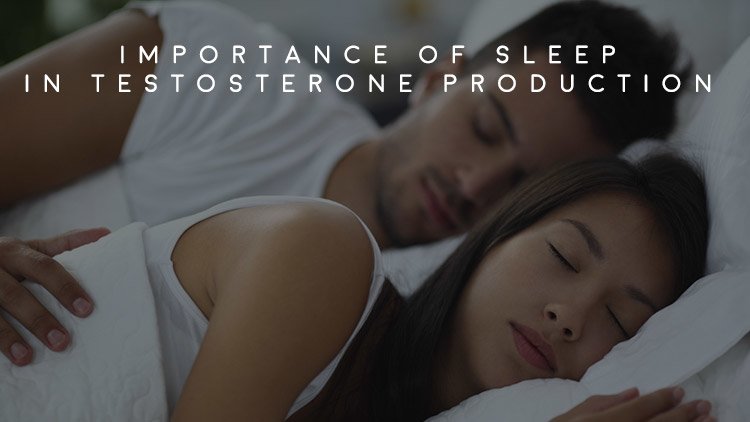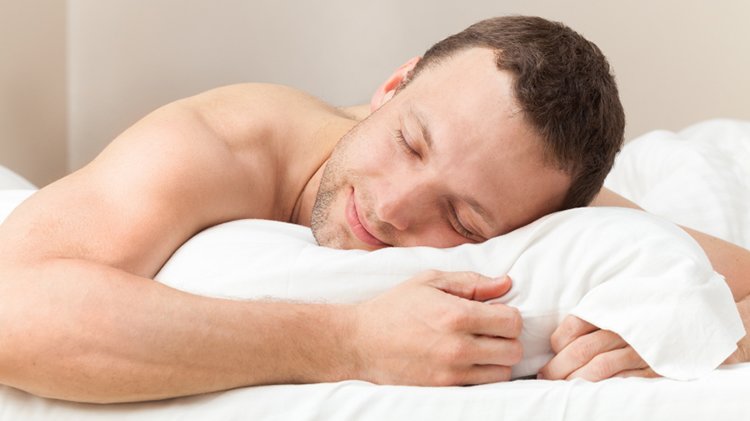
Sleep and Testosterone: Importance of Sleep for Testosterone Production
Importance of Sleep for Testosterone Production: A Threat to Your Manhood
Importance of sleep for testosterone production is vital but often neglected. One of the most important hormones for active males is testosterone. Many studies have shown how every year, testosterone production slows down in a man’s body. On top of the natural decline, the modern day lifestyle is also a leading factor in causing a steep drop.
Low testosterone is a major health and wellness risk as it may cause several ill effects. These include small sex drive, weak erections, low semen volume, loss of muscle mass, obesity, fatigue, and depression. It is crucial that you opt for natural fixes like juicing and proper nutrient taking. But you must also make total lifestyle changes to integrate changes that help in the production of testosterone.
A Good Night’s sleep: The Secret Weapon For Boosting Testosterone
When it comes to simple things you can do to boost your testosterone production, some aspects are often neglected. The importance of sleep for testosterone production is one of those overlooked aspects. Indeed, crazy schedules, stress at the office, and complex life scenarios end up making us cut in sleep hours. But sleeping is one of the most basic things to do to ensure healthy production of the wonder hormone. Other basic things are exercising, dieting and juicing.
Have you ever wonder how a good night’s rest makes you feel energized and youthful? It is curious that after a deep sleep, you feel more strength and a surge in your libido. The chances of waking up with a morning erection are far higher when your body is fully rested. When you’re tired and suffering from lack of enough sleep, the chances are quite low. You produce less and less testosterone as the day passes by. But the more you sleep, the more testosterone you create in a steady growing amount, peaking in the morning. Sleep, thus, is the restorative function which stabilizes the testosterone amount in your day to day life.
How Does Sleeping Affect Your Testosterone Levels
- The more profound your sleep is, the more likely that your body will go into REM (Rapid Eye Movement) phases of sleep. This, in turn, happens because human sleeping patterns follow a circadian rhythm. This is a 24-hour cycle in the physiological processes of human beings. During the REM phase, testosterone production reaches its maximum limit. The endocrine system is stimulated, and it signals the testosterone-producing cells to start producing the much-needed hormone. Note that even outside the REM phase, your body continues to produce testosterone. But only as long as you are sound asleep. This is a key point to support the importance of sleep for testosterone.
- Many scientific studies undertaken by different groups of researchers support the above fact. Men who slept around the 4 hour period had an average testosterone of 200-300 ng/dl. Conversely, men who took 8 hours of sleep showed a significant increase in testosterone reaching up to 680/700 ng/dl.
- Distinct studies have shown that men who slept around the 4 hours period had almost 60% less testosterone in their fluid samples than men who had a full night’s sleep (~8 hours). This study implied that just one night of bad sleep can reduce your body’s testosterone count by more than half. Imagine the amount of reduction your body faces if you often cut on your sleep.
- More importantly, regular lack of sleep over a long period also leads to a long-term drop in testosterone production. And it is tough to bring back to normal levels.
Sleeping Disorders and Sexual health: What is the Connection?
Obstructive sleep apnea is a terrible condition where the body repeatedly stops and starts to breathe while you are asleep. Studies have shown that sleep and sexual health are related. One can track it by the intensity of this condition in an affected man.
- Sleeping disorders including sleep apnea interrupt sleep and cause lack of sleep. Due to this, REM phase of sleep is seldom reached. And as a consequence, one produces a low volume of testosterone.
- Studies have supported this fact by showing that men who have sleep apnea are often plagued by low testosterone and its symptoms.
- Reduced libido, poor semen quality and content, impotence and erectile dysfunction. All this is far more common in men suffering from sleep apnea and sleeping disorders.
- The reverse is also true. Men with ED were twice as much prone to sleeping disorders than men having perfect sexual health.
Lack of Sleep in Testosterone Production: A Vicious Cycle
A very crucial point to bear in mind is that sleeping disorders, lack of sleep, sexual health and testosterone production are linked together. As they go hand in hand, improving one might improve all the other conditions.
On the other hand, since they are all connected, it gives rise to a cyclic threat. Poor sleeping leads to low testosterone production. Low testosterone increases obesity, fatigue, clinical depression and many bad conditions. These conditions have a habit of disrupting sleep on a regular basis. Further problems with sleep thus trigger more problems with a man’s sexual health. This dangerous circle keeps on going round and round.
Learning to Sleep Better: Taking Control of Your Sleep For Testosterone Production
Testosterone is the most important hormone for men’s sexual health. Learning to replenish it is your first step towards sexual healing. Good habits like proper dieting, detoxification, juicing for sexual health must also be complemented by sound and deep sleep. Note that it is not because the post list sleep last that this reduces the importance of sleep for testosterone.
Having a right amount of testosterone when your day starts automatically wins you half the battle:
- Go offline. Do not use your electronic gadgets in bed. Save your eyes and brain from the strong, flashy light your device subjects you to. Switch off your Wi-Fi as well. Electromagnetic waves and pulses, such as your device and hotspot put out, can hinder your brain function and decrease sleep.
- The pineal gland in your brain secretes the sleep hormone Melatonin. This hormone, as it helps you sleep, also helps in boosting testosterone levels by blocking aromatase enzymes. You can take a supplement if your melatonin levels are low. Ashwagandha is a great choice which both reduces stress and boosts testosterone. It will help you sleep better.
- Sleeping in the presence of light can be detrimental as light disturbs the pineal gland and thus reduces melatonin secretion.
- Sleep nude in a slightly colder room. It helps your body find the perfect balance of temperature that you do not get during the busy day. This relaxes your body, gives a good feeling and finds the perfect temperature. It puts your body in a conductive phase for higher production of testosterone.
Easy Tip to Sleep Better
Juicing detoxifies your body. It takes out the toxin and replenishes your body with natural nutrients. This helps your body to find balance and a state of relaxation, enabling you to sleep deeply. Juicing, among all its benefits, aids in digestion. Better digestion and good eating translate to good sleeping.
Conclusion
It is important for your body to recover from all the fatigue and work. There are many reasons to have enough sleep. Those reasons include better testosterone production. Bringing a few simple changes to your sleeping habits is crucial. You will witness a surge in sexual prowess and well-being. That way, the importance of sleep for testosterone production will have a new meaning for you.
I hope that this article helped you see the importance of sleep for testosterone production. If you have any questions, feel free to ask in the comment section below. I would be more than happy to help you out. And don’t forget to share this on the social networks with your bros. Help them to find out how to boost their testosterone production naturally.
Creator of the Juicing For Your Manhood programs and the #1 men’s health blog Olivier Health tips main editor. He has developed a new passion for juicing and has done a lot of experiments with foods possessing healing properties. His mission is to teach men to reinvigorate their lives using the power of juicing.
If you like this post, I invite you to click on the red bell icon located in the lower right corner to receive notifications when I publish new articles.
If you have questions for me, you can subscribe to my newsletter and send me an email by replying to the newsletter that you will receive.















